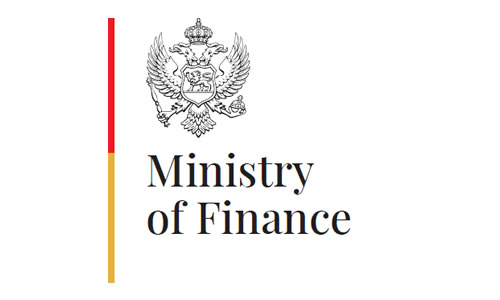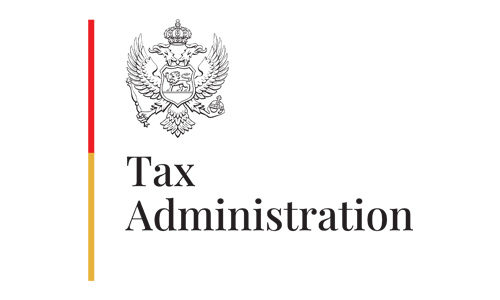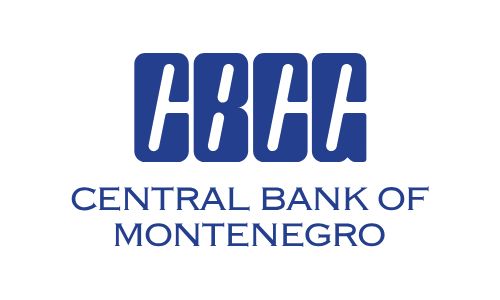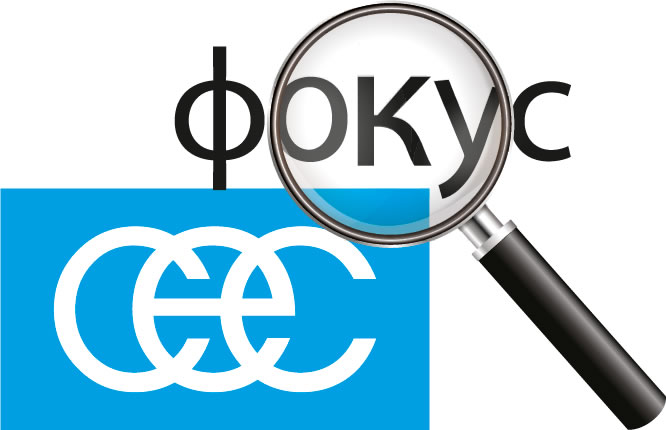The 12th Regional Summit of Governors, Ministers of Finance, and Directors of Tax Administrations, themed
“Financial and Monetary Stability of the WB Region Under Continued Weak Economic Growth in the Eurozone,” will be held from June 12 to 14, 2025, at the Splendid Hotel in Bečići, Montenegro.
This prestigious gathering, organized by the Serbian Association of Economists since 2019, stands as the largest and most influential annual regional event, aimed at strengthening collaboration and advancing dialogue among the region’s key financial institutions.
The Western Balkans face significant challenges to financial and monetary stability in the context of the subdued economic growth in the Eurozone. The sluggish performance of this pivotal trading partner adversely affects export demand, foreign investment levels, and remittance inflows. These factors collectively contribute to an escalating trade deficit and current account deficit, potentially disrupting macroeconomic stability. Consequently, monetary policy in the region must strike a delicate balance between maintaining price stability and fostering economic growth, with countries using the euro being particularly vulnerable to external shocks. Maintaining the stability of the financial system requires meticulous management of public finances (public debt, capital investments, wages, and pensions), alongside adequate oversight of the financial sector and the safeguarding of foreign exchange reserves at optimal levels. This approach helps build buffers to mitigate the negative effects of potential external shocks and uphold macroeconomic stability. In other words, the fiscal and monetary policies of the Western Balkan countries must be strategically formulated, harmonized, and coordinated to ensure more effective risk management, safeguard financial stability, and promote long-term, sustainable growth. Moreover, cooperation and coordination among the countries of the Western Balkans play a crucial role in achieving shared objectives and cultivating a more resilient and prosperous economic environment.
During the two-day program, the Summit will convene the key architects of fiscal and monetary policy – governors of central banks, finance ministers, and directors of tax administrations, as well as representatives from international financial institutions and top executives from the banking and insurance sectors. Participants will have a platform to exchange ideas and visions on the region’s future amid an increasingly complex and uncertain geopolitical and geoeconomic landscape.
With the steadfast support of our traditional institutional partners (the Central Bank of Montenegro, the Ministry of Finance of Montenegro, and the Tax Administration of Montenegro), we are confident that the XII Regional Summit will significantly contribute to deepening cooperation across various areas of mutual interest
Agenda
Message from the Organizer
Aleksandar Vlahović, President, Serbian Association of Economists
Address by the Governor
Irena Radović, Governor, Central Bank of Montenegro
PANEL 1 – CENTRAL BANK GOVERNORS SEPA AND THE WB6: A CATALYST FOR EU CONVERGENCE AND ACCESS TO THE SINGLE EUROPEAN MARKET
The integration of Western Balkan countries into the Single Euro Payments Area (SEPA) represents a strategic step toward deeper EU convergence, both technically and economically, by aligning payment systems with European standards. As a core pillar of the New Growth Plan for the Western Balkans, SEPA participation is not only a technical reform but also a political commitment to embedding the region into the EU’s economic infrastructure. The panel will explore how SEPA participation can enhance the stability and innovation of domestic financial markets, foster stronger collaboration between public and private sector stakeholders, and accelerate readiness for future EU membership. In this context, the discussion will also touch upon the broader evolution of the European payments landscape, including the development of the digital euro, and its potential implications for non-euro area countries on the path to accession.
Invited speakers (alphabetical order):
• Anita Angeloska Bezhoska, Governor, Central Bank of North Macedonia
• John Berrigan, Director-General, DG FISMA
• Ulrich Bindseil, Director General, Market Infrastructure and Payments, ECB
• Gert-Jan Koopman, Director General, DG NEAR, European Commission
• Irena Radović, Governor, Central Bank of Montenegro
• Gent Sejko, Governor, Central Bank of Albania
Moderator: Zorica Kalezić, Vice-Governor, Central Bank of Montenegro
Questions from the audience
PANEL 2 – CENTRAL BANK GOVERNORS GEOPOLITICAL FRAGMENTATION AND TARIFF PRESSURES: INFLATION RISKS AND MONETARY POLICY CHALLENGES IN THE WESTERN BALKANS
As global trade becomes increasingly fragmented due to geopolitical tensions and strategic rivalries, countries in the Western Balkans face a complex macroeconomic landscape shaped by rising tariffs, disrupted supply chains, and inflationary spillovers. For small, import-reliant economies, these dynamics challenge conventional monetary policy, as cost-push inflation driven by external shocks leaves little room for traditional interest rate tools. The introduction of new trade barriers between major global blocs not only raises import prices but also amplifies volatility in food and energy markets-areas where Western Balkan economies are particularly exposed. The region’s monetary authorities are now being tested by a world where inflation is no longer a cyclical issue, but a structural consequence of global realignment.
Invited speakers (alphabetical order):
• Ahmet Ismaili, Governor, Central Bank of Kosovo
• Razvan Munteanu, CEO, AikGroup
• Irena Radović, Governor, Central Bank of Montenegro
• Jasmina Selimović, Governor, Central Bank of Bosnia and Herzegovina
• Maarten Verwey, Director-General, DG ECFIN, European Commission
• Maroje Lang, Vice-Governor, Croatian National Bank
• Tina Žumer, Vice-Governor, Bank of Slovenia
Moderator: Zorica Kalezić, Vice-Governor, Central Bank of Montenegro
Questions from the audience
Address by the Prime Minister of Montenegro
Milojko Spajić, Prime Minister of Montenegro (TBC)
Address by the Director of Expo 2027
Dušan Borovčanin, Director of Expo 2027
PANEL 3 – MINISTERS OF FINANCE RESPONSIBLE FISCAL POLICY – PREREQUISITE FOR ENHANCING ECONOMIC STABILITY AND RESILIENCE UNDER CONTINUED WEEK ECONOMIC GROWTH IN THE EUROZONE
Harmonizing public policies with EU legislation is essential for ensuring regional stability and integration. Global trends continue to significantly impact public finances across the region, underscoring the importance of adhering to fiscal rules—and raising the question of whether these rules should become more rigid to ensure long-term fiscal stability. Effective management of public investments requires selecting projects based on feasibility, transparency, and their broader economic benefits. A critical debate revolves around whether there is enough fiscal space for potential economic stimulus or if fiscal interventions have reached their limit. The alignment of fiscal and monetary policies remains crucial, especially in addressing inflationary pressures, which continue to be a challenge.
Structural reforms are essential for maintaining strong public finances and supporting sustainable economic growth. Tackling the gray economy through improved tax and duty policies is key, alongside developing and implementing tobacco product traceability systems. In uncertain times, cooperation with international financial organizations is vital, and it is crucial that fiscal policies for 2024, along with projections for 2025, are carefully assessed to navigate the changing economic landscape.
Invited speakers (alphabetical order):
• Srđan Amidžić, Minister of Finance and Treasury, Ministers Council of Bosnia and Herzegovina
• Gordana Dimitrieska Kočoska, Minister of Finance, Government of North Macedonia
• Toni Kraljević, Minister of Finance, Government of BiH Federation
• Petrit Malaj, Minister of Finance, Government of Albania
• Hekuran Murati, Minister of Finance, Government of Kosovo
• Goran Pekez, Corporate Affairs and Communications Director, JTI WB
• Bojan Paunović, Director General of the Directorate for the State Budget, Ministry of Finance of Montenegro
• Mario Demirović, Director Customs Administration Croatia
Moderator: Zdravko Marić, Former Minister of Finance, Government of Croatia
Questions from the audience
PANEL 4 – TAX ADMINISTRATION DIRECTORS REFORM AND MODERNIZATION OF TAX ADMINISTRATION – GOALS, ACHIEVEMENT AND LIMITATIONS
Tax administrations in the region face key challenges, including the need for modernization and efficient revenue collection during uncertain times. Effective tax administration is critical for maintaining public finance stability. While reform efforts may have limitations, they are essential for improving compliance and enhancing transparency. Preventing the growth of the gray economy is a priority, requiring stronger enforcement and better reporting mechanisms. Regional cooperation strengthens efforts against tax evasion, while building trust with taxpayers encourages voluntary compliance. Digitalization and e-tax administration are crucial for streamlining processes and increasing efficiency. Finally, clear and consistent tax treatment of duty products is vital to prevent evasion, protect revenues, and support fair market practices.
Invited speakers (alphabetical order):
• Miroslav Đinović, Assistant Director, Tax Administration Serbia
• Ilir Binaj, Director, Tax Administration Albania
• Sava Laketić, Acting Director, Tax Administration Montenegro
• Goran Maričić, Director, Tax Administration Republika Srpska
• Ilir Murtezaj, Director, Tax Administration Kosovo
• Admir Omerbašić, Director, Tax Administration BiH Federation
• Goran Pekez, Corporate Affairs and Communications Director, JTI WB
• Elena Petrova, Director, Tax Administration North Macedonia
• Zoran Tegeltija, Director, Indirect Taxation Authority Bosnia and Herzegovina
Moderator: Dragijana Radonjić Petrović, Vice-President, Serbian Association of Economists
Questions from the audience
Partners
Institutional summit support








